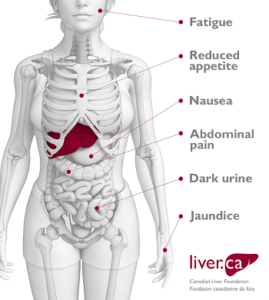Hepatitis is a virus that causes liver inflammation. Hepatitis B and C increase the risk of hepatocellular carcinoma while A does not.
/hepatitis-c-causes-5af4a5213037130037fc6186.png) Hepatitis C Virus Causes And Risk Factors
Hepatitis C Virus Causes And Risk Factors
Antibodies are chemicals released into the bloodstream when someone gets.

Hepatitis c vs a. There are now many good medications available to treat chronic hepatitis B and C. Getting tested for hepatitis C. Additionally hepatitis A only causes an acute illness while hepatitis B and C can become chronic.
Hepatitis C virus HCV is almost always chronic and spreads only by blood. Different strains of hepatitis exist including hepatitis A B C and D. What is the difference between Hepatitis A B and C.
The HCV antibody test sometimes called the anti-HCV test looks for antibodies to the hepatitis C virus in blood. If left untreated hepatitis C can lead to other serious conditions like cirrhosis cancer and liver failure. Many people do not realize that they have hepatitis C.
Hepatitis A and C are RNA viruses while hepatitis B is a DNA virus. Hepatitis C caused by the hepatitis C virus HCV How is it spread. Its estimated that about 120000 people in North Carolina.
A blood test called an HCV antibody test is used to find out if someone has ever been infected with the hepatitis C virus. With chronic hepatitis C will develop cirrhosis over 1020 years eople with hepatitis C and P cirrhosis have a 14 annual. The hepatitis C virus is typically seen in patients in the baby boomer age group but younger patients are also affected.
Hepatitis A B C D and E are very different viruses. Hepatitis B and C cause chronic hepatitis while A does not. A description of Hepatitis C antibody a test of hepatitis C part of the Just Diagnosed lesson for patients from the VA National Viral Hepatitis and Liver Disease Program.
Over 292 million people around the world are estimated to be living with chronic hepatitis B. If left untreated it can lead to liver disease and other serious long-term health problems. Apply for and manage the VA benefits and services youve earned as a Veteran Servicemember or family memberlike health care disability education and more.
Hepatitis A is genetically closer to the common cold than it is to hepatitis B for example. The symptoms of hepatitis A and C are the same. The symptoms of acute hepatitis include yellowing of the skin and eyes nausea fever and fatigue.
Serologic Tests for. Hepatitis B and C are blood borne while A is food borne. Hepatitis C is closer to the virus that causes.
While hepatitis C tends to get more attention and research funding hepatitis B is considerably more common and causes more liver-related cancer and death worldwide than hepatitis C. Despite having an effective vaccine hepatitis B is the worlds most common liver infection. HAV is found in the feces poop of people with hepa-titis A and is usually spread by close personal contact including sex or living in the same household.
Hepatitis C affects as many as 4 million people in the US and many of them dont know they have the infection because its usually asymptomatic until the advanced stages of disease. Hepatitis A and B can be prevented by vaccination but not hepatitis C. It can also be spread by eating food or drinking water.
Hepatitis C is a virus that damages the liver. The most common types of hepatitis are A B and C. Risk for hepatocellular carcinoma.
Combined chronic hepatitis B and C. More than 50 percent of patients who get infected with hepatitis C go on to chronic infection. Yellowing of the skin.
Contracting viral hepatitis can potentially lead to liver damage. Difference Between Hepatitis A B C and D Spread of the Disease Hepatitis A virus characteristically spreads through the ingestion of contaminated food and water whereas Hepatitis B C and D usually take place due to parenteral contact with contaminated body fluids like blood blood and blood product transfusions invasive medical procedures. Acute Infection IgM anti-HAV HBsAg plus IgM anti-HBc No serologic marker for acute.
Hepatitis C Hepatitis C is caused by a virus that attacks the liver and causes liver damage leading to loss of liver function.






